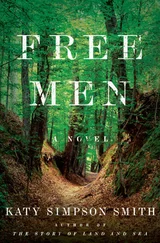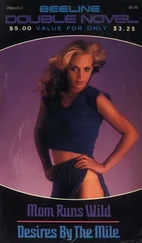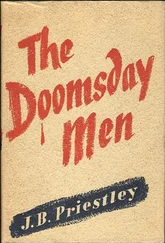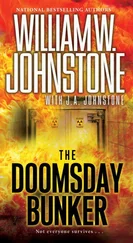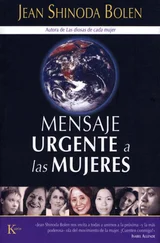
Fritz Haber in military uniform, 1916.
Haber was a proud Prussian and an ambitious scientist. A few days earlier, at Ypres in Belgium, Haber had directed the first battlefield use of poison gas in World War I. His deadly brainchild was the first of a new generation of scientific superweapons, a weapon it was hoped would decisively alter the course of the war. At Ypres, the scientist had been blooded on the field of battle.
Just before Fritz Haber returned home from Ypres, Clara had visited the wife of her second cousin, Dr Zinaide Krassa. Clara admitted that she was disturbed by her husband’s obsessional commitment to his war work. She took with her the private letters he had written from the Belgian front line. Clara confided in her friend that she had seen secret experiments being conducted on animals, both in the laboratory and outside in the leafy grounds of the Institute, in which they were exposed to varying concentrations of poison gas and then dissected to observe the effects on their lungs. It was clear to Dr Krassa that Clara was distressed by what she had seen. But no one suspected that she might take her own life.
An accident a few months earlier had also affected her deeply. One morning a few days before Christmas 1914, an explosion had rocked her husband’s Institute. Clara rushed out of the house and across the lawn. Inside the Institute, the machine hall on the ground floor was unusually silent. She was relieved to see Fritz leaning against a bench. But although unharmed, he was obviously in shock. He stared fixedly at the floor and muttered something over and over to himself.
Clara pushed her way through a huddle of scientists and technicians. Lying on the floor was Otto Sackur, a gifted young scientist from Breslau, her home town. As doctoral students, he and Clara had studied at the university together. Otto had taken an active part in Clara’s public defence of her doctoral thesis in 1900. The local newspaper reported how he had asked probing questions, but she had answered them ‘valiantly and bravely, like a man’. 1She had been the first woman to be awarded a doctorate in chemistry at Breslau and one of the first in the whole of Germany. As a scientist, she understood full well what her husband was doing in the war. As a human being, she hated it.
It was Clara who had helped Sackur to find a position at the Institute just a couple of years ago. Now that same man lay sprawled in front of her with his face blown off. His eyes, nose and mouth had disappeared, reduced to a bloody pulp. His brain was visible through his shattered forehead. Clara knelt down beside him and asked one of the engineers to cut open his collar. As they removed the starched collar, Otto raised his head. He was still alive.
Fritz Haber was uninjured. But he’d had a lucky escape. An engineer told Clara that her husband had been just about to enter the gas room when he was asked to look at a problem with the high-pressure compressor. As he did so, an explosion shook the whole building. Professor Gerhardt Just ran out of the laboratory cradling his right arm. His hand had been blown off. The other scientists had to carry Otto Sackur out of the gas room, which was now dense with smoke. Haber did nothing to help. He could only stand there saying over and over again, ‘Poor Just, poor Just.’
The two scientists had been developing a new chemical compound, for use in howitzer shells, which brought together the power of high explosive with the irritant effect of tear gas. They had just combined dichloromethylamine with cacodyl chloride. Otto had raised the beaker up to eye level so as to observe it better. It was then that the highly unstable compound exploded in his face. 2It had been the Institute’s first foray into the development of chemical weapons. This experiment was never tried again, but it was the beginning of an intensive programme of weapons research at the Institute that would last for the duration of the war and beyond.
Sackur did not survive for long. ‘He died as a soldier on the battlefield,’ said Haber later. He managed to win a war pension for the man’s widow and daughter, and recommended Professor Just for an Iron Cross. It was awarded a month before Haber’s top-secret chemical weapon was used on the Western Front. Thanks to Haber, scientists were now soldiers, and a new front line had been opened up that reached right into the chemist’s laboratory.
When Clara visited Zinaide Krassa with her husband’s letters from the front, she was ‘in despair’ at the ‘terrible effects of gas war’, as her second cousin later recalled. 3Physicist James Franck was among the scientists hand-picked by Haber to oversee the use of poison gas on the battlefield. According to Franck, the sensitive and idealistic Clara ‘wanted to reform the world’. 4By contrast, her husband was interested only in helping Germany to win the war. A converted Jew, Fritz Haber wanted to prove beyond question his loyalty to Kaiser and country. ‘ Im Frieden der Menschheit, im Kriege dem Vaterland ,’ was Haber’s motto as a scientist: in peacetime he worked for humanity, but in wartime for the Fatherland. 5Haber was convinced that science and scientists would win the war for his country.
Clara committed suicide early on the morning of 2 May 1915, just over a week after her husband’s scientific weapon was released on unsuspecting French Algerian troops near Ypres. In the silence of that night, Clara had written several farewell letters. Then she took her husband’s pistol from its holster, went out into the garden and, after first firing into the air, she shot herself. She lived for a few hours after Hermann found her. Fritz had refused to listen to her protests about his misuse of science. Thanks to the sleeping pills, he didn’t hear her pistol shots either.
According to some, Clara had warned her husband that if he did not stop working on the new weapons, she would kill herself. Her biographer has argued that she saw chemical weapons as a perversion of science, corrupting a discipline that should be offering insights into life, not inventing ever more terrible means of destroying it. 6Many years later, after both Fritz and Hermann were dead, the Institute’s engineer, Hermann Lütge, offered another motive for her suicide. He claimed that during the reception that evening, Clara had surprised her husband kissing Charlotte Nathan, the young woman who would become Haber’s second wife in 1917. 7No one could corroborate this claim, but it is clear that the Habers were by no means happily married. Charlotte Nathan archly described Clara and Fritz’s difficult relationship as a ‘Strindberg marriage’. 8Clara’s final letters could have revealed her true motive. Unfortunately, none have survived, and neither her family nor Haber’s ever discussed the matter. Her protest against the misuse of science – if that is what she intended – went unnoticed.
On the same day as his wife’s suicide, Fritz Haber departed for the Eastern Front. He had been ordered to supervise a gas attack on Russian forces. His young son must have been distraught at being left in these circumstances, without either of his parents. Six weeks later, on 12 June 1915, Haber wrote to a friend that it was good to be at the front line where the bullets were flying. ‘There,’ he wrote, ‘only the moment counts and what one can do within the confines of the trench is one’s only duty.’ 9
In the same letter he wrote passionately about how the experience of war awoke in him romantic notions of heroism inspired by patriotic poetry. He also admitted that when the din of battle finally abated, he could still hear the voice of his dead wife. But he remained fixated on his task of perfecting his chemical weapon, and he pursued this terrible grail with a religious fervour. For Haber, his success or failure would determine the outcome of the war: ‘The responsibility is the most terrible of all,’ he wrote, ‘the awareness that a wasted day or a delayed order costs blood that I could have spared with more hard work and energy. That is the whip that I always feel hanging over me.’ 10
Читать дальше


